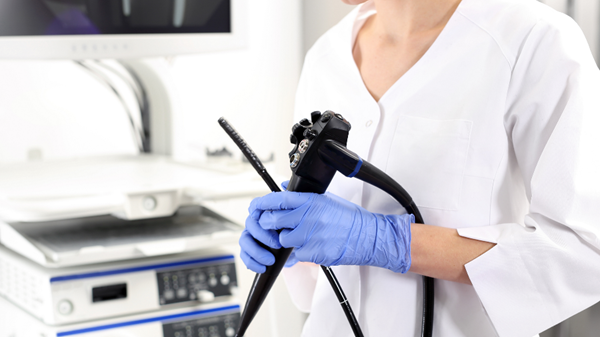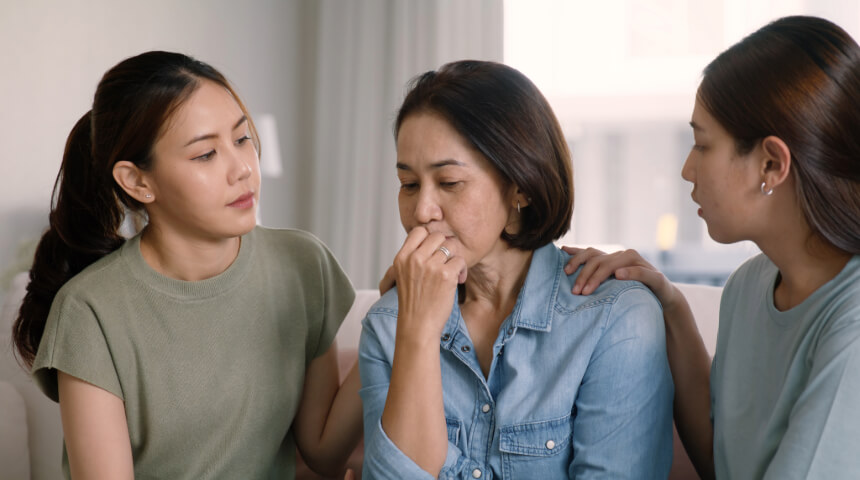Colon Cancer—It’s Time to Get Your Colorectal Cancer Screening
What if you could avoid getting cancer? What if there were a test that could, in many cases, prevent you from developing a particular kind of cancer? Sounds good, right? The best news is, this is actually true.
Colorectal cancer is cancer that starts in the large intestines (colon) or rectum. It’s the third most common cancer in the U.S., most often affecting adults 50 and older, and is the second largest cause of cancer deaths in the country.
Early stages of colorectal cancer may show no symptoms, so screening is the best way for early detection and prevention. Despite this benefit, one out of three adults are not up-to-date on their recommended colorectal screening.
Who Should Get Tested?
Doctors usually recommend having a colorectal cancer screening by the age of 50 and repeating it at set intervals, depending on the results of the tests, your health and family medical history.
Signs of Colorectal Cancer
If you notice any of the symptoms below, you should also make an appointment with your doctor to see if you should be screened:
- Long-term changes in bowel movements, including diarrhea or constipation, that last longer than a month
- Bleeding or blood in the stool
- Abdominal pain, cramps or gas that doesn’t go away
- Weakness or tiredness
- Unexplained weight loss
Types of Cancer Screenings
Several tests screen for colon cancer. One of the most well-known is a standard colonoscopy. Other tests include a sigmoidoscopy, virtual colonoscopy, fecal occult blood testing and stool DNA testing. Let’s take a brief look at each.
The standard colonoscopy—Examines the colon and rectum using a colonoscope (a flexible lighted tube with a lens that enables the doctor to view the organ and a tool that allows the doctor to remove any tissue). The colonoscope is inserted in the anus, and air is pumped inside to expand the area for viewing. During the procedure, any abnormal growths can be removed. Patients are sedated during this procedure, and they must complete a colon cleanse before the procedure. The National Cancer Institute says colonoscopies can reduce the risk of death from colorectal cancer by 60 to 70 percent.
Sigmoidoscopy—Similar to a colonoscopy, a sigmoidoscopy examines the rectum and s-shaped section of the colon that connects to the rectum. Although patients need to clear the colon of stool before the procedure, the preparation is not as extensive as that for a colonoscopy. People who have regular screening through this method have a 60 to 70 percent lower risk of death from cancer of the rectum and lower intestines.
Virtual Colonoscopy—Uses X-ray equipment and computer technology to create a detailed image. Colon cleansing is required, and air is pumped into the colon to expand it for viewing. If any abnormalities are found, a colonoscopy is usually the next step.
Fecal occult blood test or (FOBT) and fecal immunochemical test (FIT)—Tests for blood in the stool, which may indicate cancer. The patient collects a stool sample and returns it to the doctor for testing.
Stool occult blood testing with high-sensitivity tests can provide similar reductions in mortality compared to colonoscopy and some reduction in incidence. If this test comes up positive, a follow‐up colonoscopy is needed.
Stool DNA test—Similar to the FOBT, the stool DNA test looks for blood in the stool, but also tests for other molecules (biomarkers) that have been found in precancerous tumors and colorectal cancer. If this test comes back positive, doctors will schedule a colonoscopy.
What is the best screening for you? That is a decision you and your doctor can discuss, based on your health and history. But perhaps the type of screening to have is the one you will do—the one that may help you avoid colorectal cancer.
Do you want to learn more about colon cancer?
Colorectal cancer, or cancer of the colon, is usually discovered during a colonoscopy, a procedure that lets your doctor look inside your entire large intestine. This cancer is common and may be cured if discovered early.
Learn More Here










